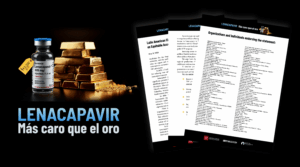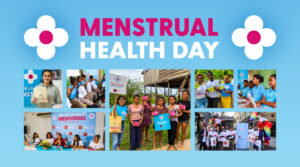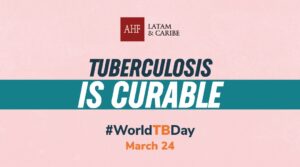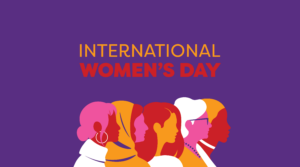Since the emergence of the new coronavirus pandemic at the end of 2019, scientists around the world began to explore all kinds of already known drugs in an attempt to treat the infection.
From antivirals used for respiratory viruses to anticancer drugs, they went through stages of experimentation to end SARS-CoV-2, and antiretroviral, used to treat HIV, were no exception.
So far, and due to the race against the clock caused by the COVID-19 pandemic, only one antiretroviral drug, ritonavir, has been included in the only treatment designed specifically for the disease.
The importance of the population with HIV
Also from the beginning of the pandemic, the scientific community has taken special interest in how COVID-19 would affect people with a compromised immune system, such as people with HIV.
Even though this population may have a strong immune system thanks to the treatments, they also present certain vulnerabilities that made it difficult to predict the effect that the new disease would have.
Due to the relevance of these cases, several scientific studies have followed people with HIV, and the results of a specific one were recently released, which observed the possible protective role of Tenofovir diproxil fumarate (TDF) in people with HIV who they had COVID-19.
A possible protective drug
As reported by the Working Group on HIV Treatments (gTt-HIV), the hypothesis of the protective role of TDF against COVID-19 arose very early in the coronavirus pandemic. A study promoted by the Spanish Ministry of Health was even carried out, although it had to be stopped due to other investigations that pointed to the ineffectiveness of the drug.
Despite this, and the fact that most research around the world focused on developing vaccines against SARS-CoV-2, some researchers continued to investigate TDF.
Today, more than two years after the start of the pandemic, an American study found that TDF could reduce the risk of suffering from symptomatic COVID-19 and hospitalization for this cause.
The results
The research was carried out on more than 20,000 men in the United States, thanks to the collaboration of the Department of Veterans Affairs of that country. In the trial, various parameters were compared in former military personnel with COVID-19 and HIV on antiretroviral treatment containing TDF or abacavir.
62% of the participants were taking another type of Tenofovir in their treatment regimen, called Tenofovir alafenamide (TAF); 19% were taking abacavir; 5% were taking TDF and 15% were taking treatments that did not include any of the above. 47% were of black ethnicity.
Although comorbidities were similar in all groups, people taking TDF had:
- Lower rates of diabetes (8% vs. 12% in other groups)
- Lower rates of chronic kidney disease (4.5% vs. 14% of those taking abacavir, and 8% of those taking TAF)
This last piece of information is important for interpreting the results, say the researchers, because TDF has a known degree of kidney toxicity, so it is possible that the study participants continued to take it because they had good kidney function. It should be remembered that kidney disease predisposes COVID-19 to become more severe.
Symptomatic SARS-CoV-2 infection was 7.4% in men on TAF, 7.5% in men on abacavir, and 4.9% in those taking TDF. Therefore, TDF was associated with a 35% reduction in the risk of symptomatic COVID-19. In the same sense, the risk of hospitalization in men with TDF was reduced by 57%.
Things in perspective
The research in question is an observational study, that is, the scientists reviewed the data already obtained during a past period of time. TDF has not been tested to find out if it is capable of protecting against symptomatic or severe COVID-19.
Still, this research could shed a little more light on what may be happening in people living with HIV who have gotten through SARS-CoV-2 infection well.
As you can see, antiretroviral treatment is crucial to help your immune system stay strong. If you already have an HIV diagnosis and have not started treatment or suspended it and want to resume it, come to AHF Latin America and the Caribbean and we will gladly help you. We are in 11 countries in the region, contact us and schedule your appointment now.







